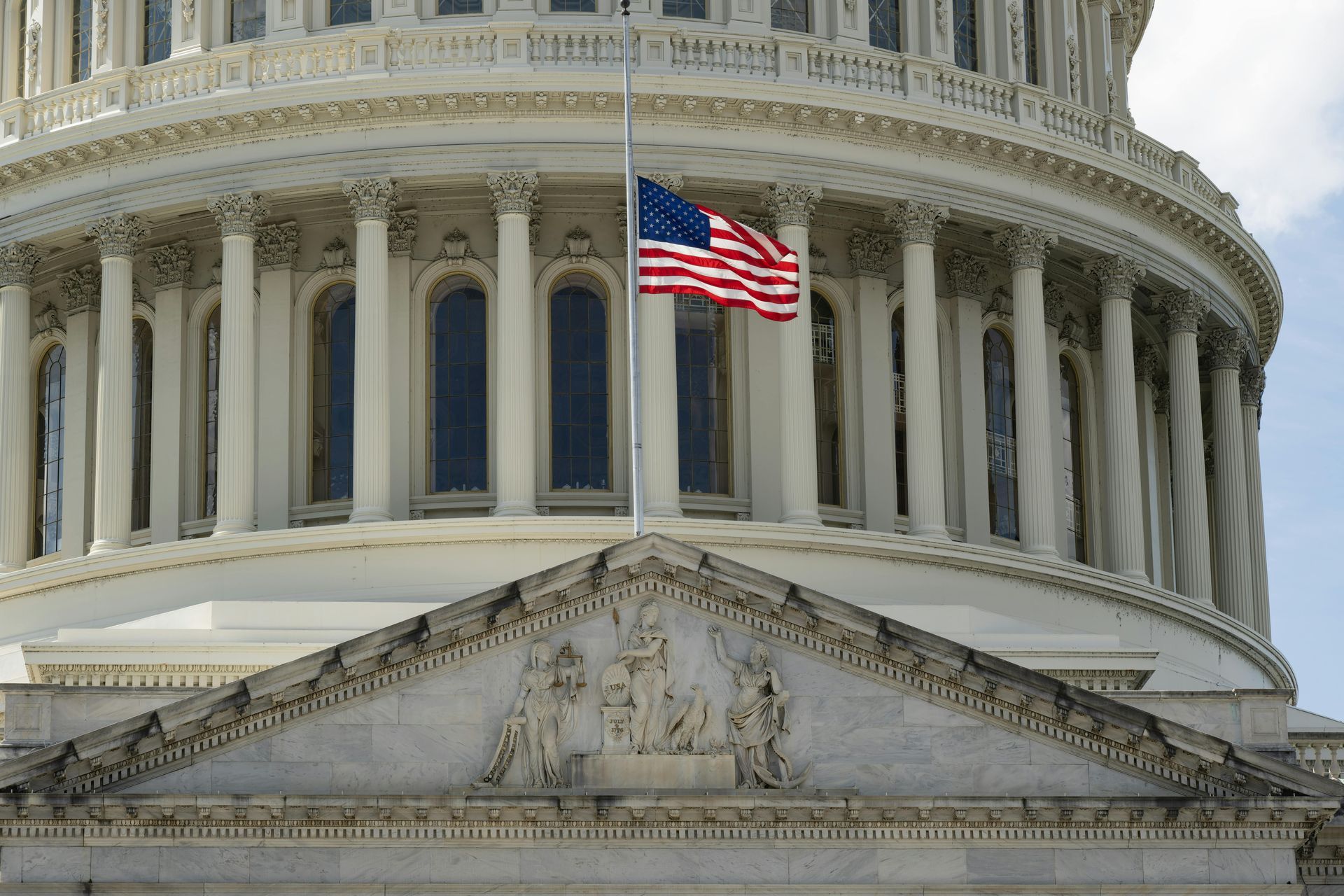Requisitos fiscales de EE. UU. para residentes fiscales de EE. UU.
Olga Guzhva • February 29, 2024
Click here to read this article in English
Al considerar la inmigración a los Estados Unidos, la gente a menudo busca los entresijos de las diversas opciones de visa, el costo de la salida y las oportunidades educativas para los niños, pero rara vez preguntan sobre las implicaciones de los impuestos estadounidenses. Si realiza una búsqueda en Google sobre inmigración estadounidense, encontrará mucha información sobre diversas visas y sus requisitos de elegibilidad, el proceso de obtención de una tarjeta verde o naturalización, etc. La información sobre las normas fiscales de EE. UU. no aparecerá en su búsqueda de Google a menos que la busque específicamente.
- Como parte de su planificación de inmigración, es muy importante conocer y comprender las obligaciones tributarias de los EE. UU., específicamente si tiene activos en su país de origen.
- Además, si decide abrir su nuevo negocio en los EE. UU. y solicitar una visa de inmigrante, como EB-1 o EB-2 NIW, o una visa de no inmigrante, como E-2 o L-1, también querrá saber qué impuestos usted y su entidad comercial tendrían que pagar.
- Incluso si no inmigra a los Estados Unidos pero elige trabajar allí con una visa temporal de no inmigrante, puede estar sujeto a impuestos estadounidenses.
En general, (1) los residentes fiscales de los EE. UU. pagan impuestos de la misma manera que los ciudadanos estadounidenses: sobre sus ingresos mundiales, mientras que (2) los no residentes generalmente pagan impuestos sobre los ingresos de fuente estadounidense y los ingresos efectivamente relacionados con el comercio o los negocios de los EE. UU.
Los ingresos de los residentes están sujetos a las tasas impositivas graduadas que se aplican a los ciudadanos estadounidenses. Los residentes utilizan la tabla de impuestos y los cuadros de tasas impositivas que se aplican a los ciudadanos estadounidenses que se encuentran en las instrucciones para el formulario 1040 y el formulario 1040-SR2.
Residencia según la ley fiscal de EE. UU.
La tributación de una persona que no es ciudadano estadounidense o nacional de los EE. UU. depende del estado de residencia de dicha persona.
Si es residente de los EE. UU., debe declarar todos los intereses, dividendos, salarios u otras compensaciones por servicios, ingresos por alquiler de propiedades o regalías y otros tipos de ingresos en su declaración de impuestos de los EE. UU. Debe informar estos montos ya sea que se ganen dentro o fuera de los Estados Unidos.
Nota: Un residente estadounidense a efectos de inmigración no siempre es lo mismo que un residente estadounidense a efectos fiscales.
¿Quién es el residente fiscal de EE. UU.?
- El ciudadano estadounidense es un residente de los EE. UU. a efectos del impuesto sobre la renta de los EE. UU.
- Un inmigrante que obtiene una tarjeta verde es tratado como residente permanente legal a efectos de inmigración y se le considera residente fiscal de los EE. UU. a efectos del impuesto sobre la renta de los EE. UU.
- Un ciudadano extranjero podría ser residente de los EE. UU. a efectos del impuesto sobre la renta de los EE. UU. según la prueba de presencia sustancial.
- Los extranjeros podrán optar por ser tratados como residentes de doble estatus para este año contributivo si cumplen con ciertas pruebas. Para obtener más información, consulte la Publicación 519, Guía fiscal de EE. UU. para extranjeros.
- Usted es una persona con doble estatus cuando ha sido residente y no residente de los EE. UU. en el mismo año fiscal.
- El estatus dual no se refiere a su ciudadanía, sólo a su estatus de residente a efectos fiscales en los Estados Unidos.
- Al determinar su obligación tributaria sobre la renta de los EE. UU. para un año fiscal de doble estatus, se aplican reglas diferentes para la parte del año en que es residente de los Estados Unidos y la parte del año en que no es residente. Los años tributarios de doble estatus más comunes son los años de llegada y salida.
Al planificar su inmigración a los Estados Unidos, la planificación estratégica inteligente de su proceso de inmigración, así como la evaluación de sus obligaciones tributarias futuras en los EE. UU., son esenciales para estar tranquilo y evitar problemas y problemas al tratar con el IRS. Navegar por las complejidades de las leyes fiscales y de inmigración de los EE. UU. a menudo requiere orientación legal profesional. Buscar la asistencia de un abogado de inmigración con experiencia y versado en los impuestos estadounidenses puede mejorar significativamente las posibilidades de que su planificación de inmigración sea exitosa, garantizando el cumplimiento de estas complejas regulaciones y requisitos.
Si tiene alguna pregunta sobre lo que esto significa para usted, programe una consulta con uno de nuestros abogados experimentados.
¡Esperamos con interés trabajar con usted!
Este blog no pretende ser asesoramiento legal y nada aquí debe interpretarse como el establecimiento de una relación abogado-cliente. Programe una consulta con un abogado de inmigración antes de actuar según cualquier información leída aquí.

The federal government entered a partial shutdown on January 31, 2026, after Congress failed to pass a final funding package. While this follows the record-breaking 43-day shutdown from last fall, this disruption is expected to be brief, with a House vote anticipated for the first week of February. However, as of February 2, several key departments are operating under shutdown contingencies. If you are an employer or a foreign national, here is what you need to know about how this affects your immigration matters: Impacts for Employers Certified LCAs: The Department of Labor (DOL) has suspended the processing of Labor Condition Applications. This means employers cannot currently obtain the certifications required to file new H-1B, H-1B1, or E-3 petitions. PERM and Prevailing Wages: Processing for PERM labor certifications and prevailing wage determinations has halted. This will likely cause a backlog once the government reopens. E-Verify: The E-Verify system is typically taken offline during a shutdown. Employers should continue to follow I-9 requirements but may be unable to resolve Tentative Nonconfirmations (TNCs) until the system is restored. Impacts for Employees and Families Consular Services: While U.S. embassies and consulates are fee-funded, their operations may be reduced. If you have an upcoming visa interview, check the specific consulate's website for status updates, as delays are possible. USCIS Operations: Because USCIS is primarily funded by application fees, it remains open. You should still attend scheduled interviews and biometrics appointments unless notified otherwise. CBP and Travel: U.S. Customs and Border Protection (CBP) functions are essential. Ports of entry remain open, though you may experience longer waiting times due to staffing adjustments. At Santos Lloyd, we are closely monitoring the situation as it unfolds. Whether you are an employer seeking guidance on how this shutdown impacts your hiring plans or an employee with general questions regarding if or how you may be affected, please reach out to our office. We remain dedicated to providing the updates and professional assistance necessary to help you navigate these disruptions.

U.S. Citizenship and Immigration Services (USCIS) has announced a major change to the H-1B cap selection process. Under a final rule issued on December 29, 2025, USCIS will replace the long-standing random H-1B lottery with a wage-weighted selection system that favors higher-paid and more complex positions. The rule is scheduled to take effect on February 27, 2026 , just ahead of the fiscal year 2027 H-1B cap registration season, unless delayed by legal challenges. If implemented, USCIS is expected to release additional guidance explaining how employers must submit registrations under the revised process. This change marks one of the most significant reforms to the H-1B program in recent years. Up until 2025, all registrations were treated equally once the annual cap was reached. Under the new system, selection odds will be tied to wage levels based on the U.S. Department of Labor’s Occupational Employment and Wage Statistics data. All H-1B registrations will still be placed into a single selection pool, but registrations tied to higher wage levels will receive multiple entries into that pool, increasing their likelihood of selection. Lower wage levels will receive fewer entries, making selection less likely but not impossible. H-1B wage levels are not determined solely by salary. Each wage level reflects the complexity of the job, the level of responsibility involved, and the education and experience required . Entry-level positions involving routine duties and close supervision are generally classified at the lowest wage level, while positions requiring independent judgment, advanced skills, and significant responsibility fall into higher wage levels. The highest wage level is reserved for roles that involve expert knowledge, strategic decision-making, and substantial leadership or technical authority. USCIS is expected to closely scrutinize selected petitions to ensure that the wage level claimed during registration is supported by the job duties and salary offered in the petition. Any discrepancies between the registration and the petition may result in requests for evidence, denials, or enforcement action. With the elimination of the purely random lottery, employers should begin preparing early by carefully evaluating job descriptions, wage levels, and overall H-1B strategy. Accurate classification and thoughtful planning will be essential under this new wage-based selection system. If you are an employer considering H-1B sponsorship, or a foreign professional wondering whether your position may qualify under the new wage-based system, consulting with experienced immigration counsel is more important than ever. Santos Lloyd Law is actively advising clients on H-1B cap registrations and strategy under the new rules. To discuss your options or determine whether you may qualify, contact our office to schedule a consultation.

During the recent administration there has been an increase in issuance of Requests for Evidence for EB-1A petitions for those of Extraordinary Ability. A Request for Evidence is a request that is made by USCIS that should explain how the evidence is deficient in proving the criteria argued and what additional evidence needs to be provided by the applicant to meet the criteria. EB-1A petitions are already normally subject to higher scrutiny because their approval is the first step needed to apply for Lawful Permanent Residence or a green card. USCIS normally requires not just evidence but that the evidence be provided with context and information to show why it matters in a particular field. For example, if you were providing evidence of your membership in an organization that requires outstanding achievements of its members, just providing evidence of the membership is not enough. You must explain what that membership is and provide background information on the organization granting the membership. You also need to provide evidence on the criteria that is used to select the members, information on those who select the members to show that they are recognized experts, other documentation such as articles about the membership organization to show its importance, and any other relevant evidence and background information to show that the criteria is met. A request for evidence being issued prior to the current administration was not uncommon, but in the current climate it is more surprising to not receive a request for evidence for this type of case. It is important to remember that a request for evidence is not a denial. Depending on the validity of the information in the request and the substance some Requests for Evidence can be overcome, and the case be approved. It is important to carefully review the request and note if there are any errors in the content and application of the regulations by USCIS. If you have an attorney, you should work with them and make sure that you provide any evidence you think may be helpful. Although there is a deadline by which a response must be submitted, attention to detail and patience will go a long way when dealing with having to respond to a request for evidence. If you believe you may qualify for this type of visa, please feel free to contact our office.



